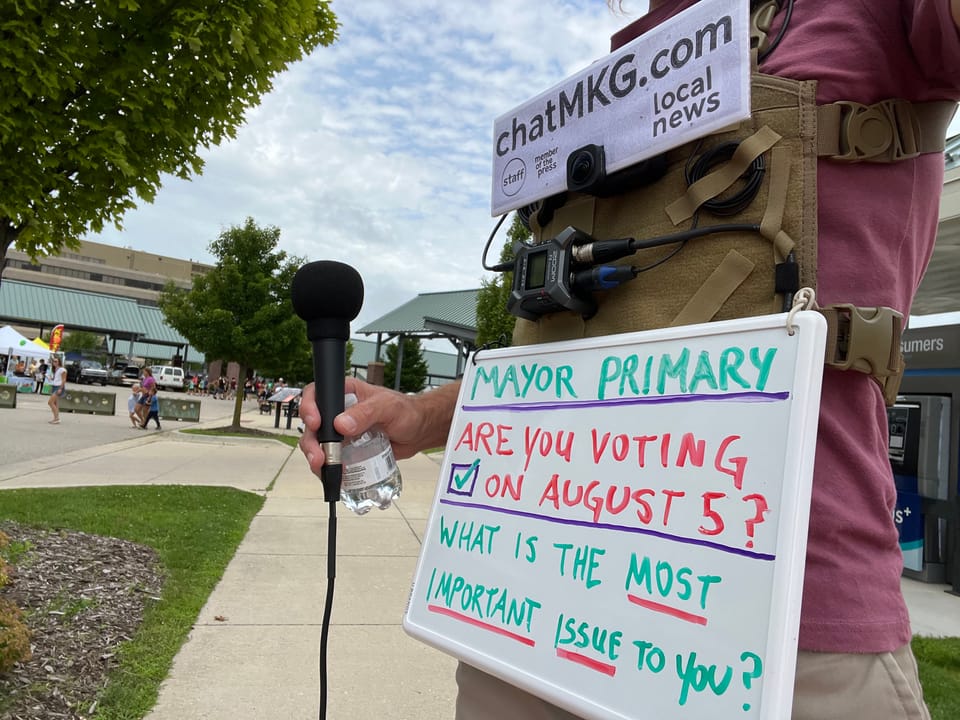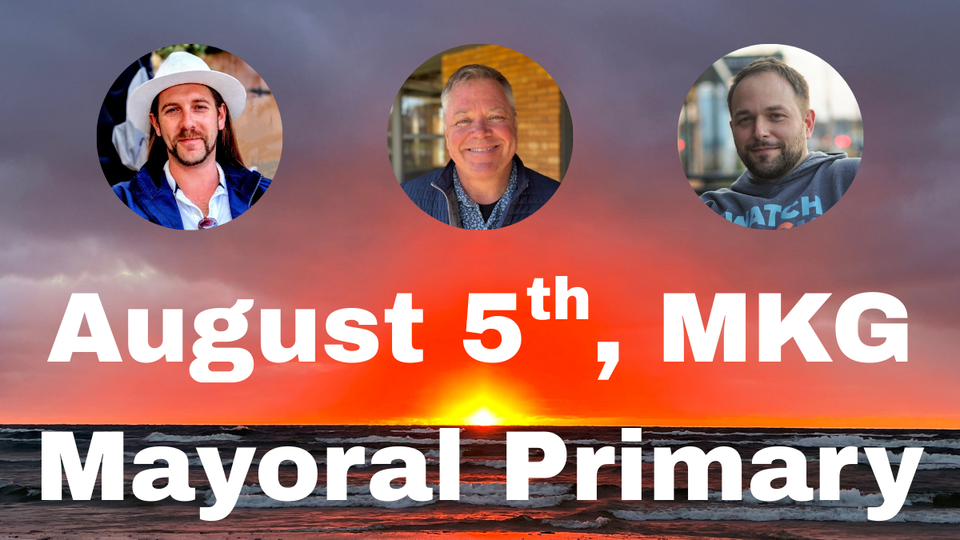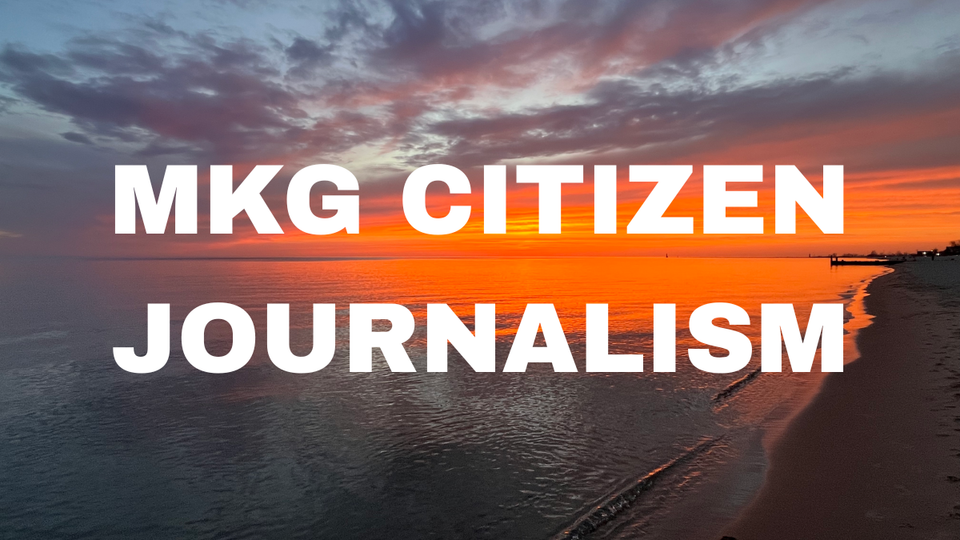Muskegon Commission Term Limits: A Case for Renewing Democracy
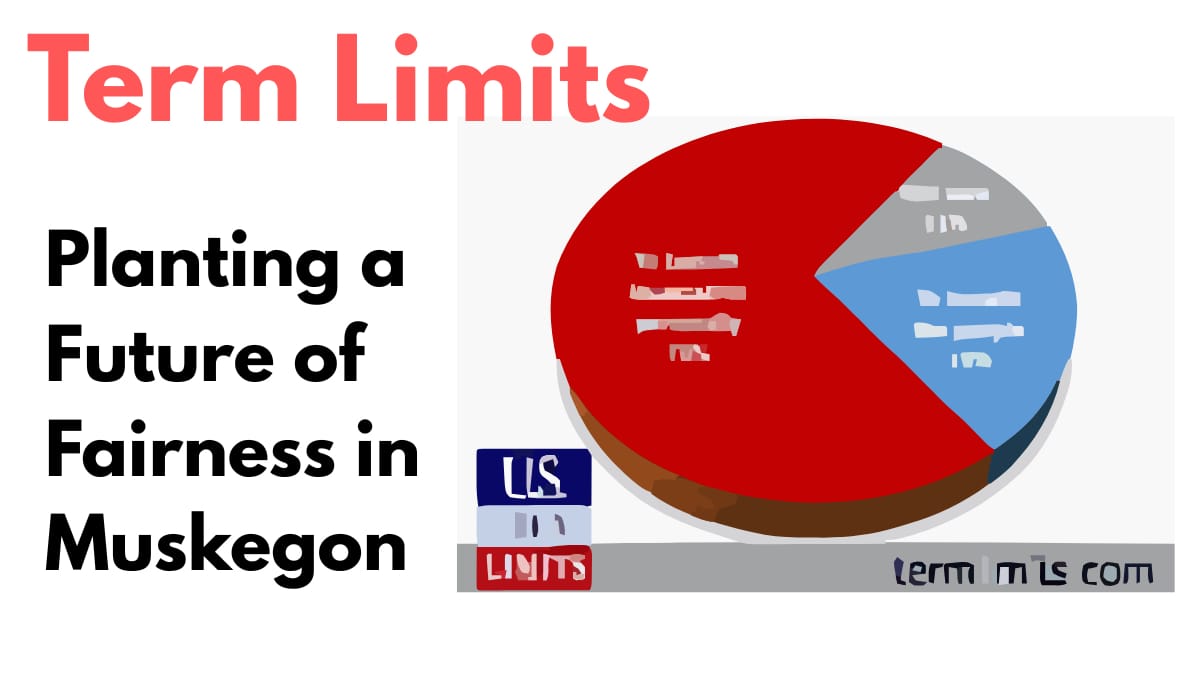
In the race for Muskegon’s mayoral office, grassroots candidate John Richard Allen has put forward a bold vision for revitalizing local governance through a Term Limits Initiative. This proposed charter amendment, set to appear on the November ballot, aims to reshape the city’s political landscape by fostering accountability, curbing cronyism, and empowering fresh voices. “This is more than just a proposed charter amendment, it’s a fundamental step towards renewing democracy right here in Muskegon,” Allen declares, emphasizing the initiative’s roots in a citizen-led demand for change.
Specifically, this ballot initiative allows November 4th Voters to enact 12-year Term Limits for Muskegon's City Commission, including the Mayor, Two At-Large Commissioners, and Commissioners for Ward I, II, III, and IV. This initiative was spearheaded by Allen and the Muskegon Partnership for Reasonable Limits.
The Case for Term Limits
Allen’s initiative addresses a persistent issue in Muskegon: the entrenchment of power that breeds cronyism and back-room deals. Without term limits, long-serving officials can cultivate cozy relationships with private interests, often at the expense of the public trust. Examples like the proposed Fisherman’s Landing and Third Street Peninsula Public-Land Swap highlight this concern, where the utilization of public land and grant funds will potentially be determined by a commission that includes Mayor Ken Johnson, currently serving his 12th year in elected office and Commissioner Willie German Jr, currently serving his 14th year. “Term Limits Prevent Entrenched Power and Reduce Special Interest Influence,” Allen argues, noting that the initiative “dismantles the ‘career politician’ model at the local level, significantly undermining undue influence from special interest groups.”
By capping the tenure of elected officials, term limits disrupt these entrenched networks, making it harder for private interests to secure deals that prioritize profit over public good. Historically, Muskegon's elected officials have voted to sell public land for pennies on the dollar, with the discussions informing these decisions often shrouded in secrecy. It should be noted that both Mayor Johnson and Commissioner German voted in favor of the city's sale of public land to Parkland Properties for 1 (one) dollar and the erasure of an easement for 1 (one) dollar in December of 2020. Ultimately, Judge Kenneth S. Hoopes of the 14th Circuit Court ruled both of these actions violated the Michigan Constitution and that city officials acted in bad faith and violated city code. The judge's ruling voids the city’s deal with Parkland Properties and calls into question the votes of Mayor Johnson and Commissioner German. Would a limit to Johnson's and German's time in elected office bring fairness back to city business? Allen explains, term limits would shift the focus, as to “genuinely serving the public and addressing the immediate, pressing issues facing Muskegon,” rather than perpetuating cycles of favoritism.
Muskegon Commission's decision to sell city property and erase an easement for $2 deemed unconstitutional
A Broader Vision for Muskegon
Beyond curbing cronyism, the Term Limits Initiative promises a range of benefits for Muskegon’s democracy. Allen emphasizes that “Term Limits Foster New Leadership and Fresh Perspectives,” paving the way for teachers, small business owners, and community leaders to bring real-world experience to the City Commission. This influx of diverse voices counters the stagnation that comes with long-held power, ensuring policies reflect the community’s evolving needs.
Moreover, term limits enhance electoral competitiveness. “We are leveling the playing field,” Allen says, highlighting how open seats encourage more candidates to run, giving voters a broader array of choices. This aligns with a growing national sentiment, as Allen notes: “It is a well-established and continually growing fact that Americans support term limits.” By breaking the cycle of re-elected incumbents, Muskegon could see a more vibrant democratic process.
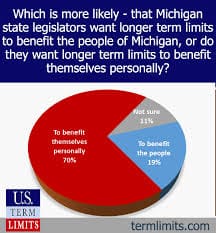
The initiative also restores the ideal of the citizen-legislator, a principle Allen connects to the city’s founding vision. “Our City Commissioners should be connected to the daily lives of Muskegon residents,” he says, advocating for leaders who serve temporarily and then return to live under the policies they’ve enacted. This approach ensures accountability, as officials remain tied to the community’s realities rather than insulated by prolonged power.
Addressing the Counterargument
Critics of term limits often argue that they risk losing experienced leadership, potentially leading to short-term thinking. While experience matters, the cost of unchecked tenure is far greater in Muskegon, where entrenched relationships have repeatedly undermined public trust. The loss of institutional knowledge can be mitigated by fostering a culture of mentorship and collaboration among new leaders. Term limits, far from destabilizing governance, create a dynamic system that prioritizes innovation over complacency.
A Step Toward a Vibrant Future
Allen’s initiative is a call to action for Muskegon residents tired of seeing public resources misused through cronyism. By supporting term limits, voters can ensure that “leadership remains fresh, focused, and wholeheartedly dedicated to our city’s future,” as Allen puts it. The metaphor he uses—“A society grows great when leaders plant trees in whose shade they shall never sit”—captures the selfless vision behind this effort. Term limits are not just a policy change; they’re a commitment to a government that serves all of Muskegon, not just a select few.
As the November election approaches, the Term Limits Initiative offers a chance to break free from the shadows of closed-door deals and build a more transparent, accountable Muskegon. Voters who agree may join John Richard Allen in planting the seeds for a stronger democracy—one that prioritizes the public good over private gain.
Cheers!
chatMKG Staff


